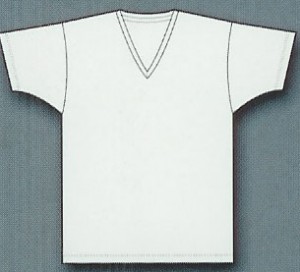Umbilicus: The navel. During pregnancy a mass of vessels called placenta or afterbirth (as it is ejected after the birth of the child), is formed on the inner surface of the womb, and conveys the mother’s blood to the child by an artery in the umbilical cord which enters the child by the navel and maintains a circulation, the venous blood returning to the mother by another blood vessel. As soon as the child is born respiration establishes itself, the umbilical cord is cut (it contains no nerves) and the navel bandaged. Children born after seven months of pregnancy are capable of life. With animals the mother usually devours the afterbirth.
Vaudeville: A form of theatrical entertainment extremely popular in the United States and Europe. Large circuits of theatres are devoted to it, and a great number of small theatres showing moving pictures give vaudeville acts also. Vaudeville originated in France and described a short play; but the word in the United States has superseded the word “variety” as a means of indicating a theatrical show composed of various features. In vaudeville, the acts, each lasting from ten to thirty minutes, but mostly twenty minutes, are of all kinds; short plays, farces, operettas, protean plays. sketches, singers, teams of comedians who dance, sing and tell jokes, sister teams, all sorts of players on musical instruments; an endless number of athletic feats, such as bicycle riding, juggling, tight rope walking, skating, and bag punching; sleight-of-hand performers; performing animals; appearances of persons temporarily notorious; all kinds of spectacular and trick dancing; lightning changes of costume, lightning pictorial and plastic artists, thought-reading, hypnotism, in fact everything of any possible interest. As a form of amusement, it is not regarded highly, and is chiefly patronized by “the general public”–those looking for amusement only.
Warfare in the Air: A subject which has developed to the point of international discussion, and by many it is prophesied that the next great war will see the aeroplane fleet an important adjunct of the opposing forces. By means of these commanders of hostile armies can inform themselves of each other’s movements, and shells dropped from an aeroplane can do most effective damage; whereas it is difficult for the enemy to secure an accurate range on an aeroplane because a shot “wild” in the air gives no indication of how far it went wild as on land or water. Besides an aeroplane only 1,000 feet in the air is an inconspicuous object and can only be hit by accident. Some progress toward warfare in the air has already been made. The Germans have done considerable work in perfecting aeroplane guns, but only practical experience will show their efficacy and aviators do not at present look for great results from them. Aerial warfare is the most uncertain of all developments; and the probabilities are that the very proportions to which the subject will advance will operate to put an end to international wars altogether.
Werewolf: According to an Old World superstition, a human being changed into a wolf, but preserving its original intelligence. Numerous men charged in the Middle Ages with crimes were deemed of the Werewolf category. The superstition prevailed in many parts of Europe to a comparatively recent time, and some such belief is prevalent amongst the most savage races at the present day.
Windows: Originally apertures for the admission of the wind into dwellings, began to be made of glass and used only for the admission of light in very early times. There is evidence of glass windows having been used at Pompeii, but they did not become common in England before the twelfth century. A window tax was imposed in 1695, and again at later dates for special revenue purposes. As late as 1850, the sum of over $9,000,000 was obtained from the tax. It was repealed in 1851.
See also:



